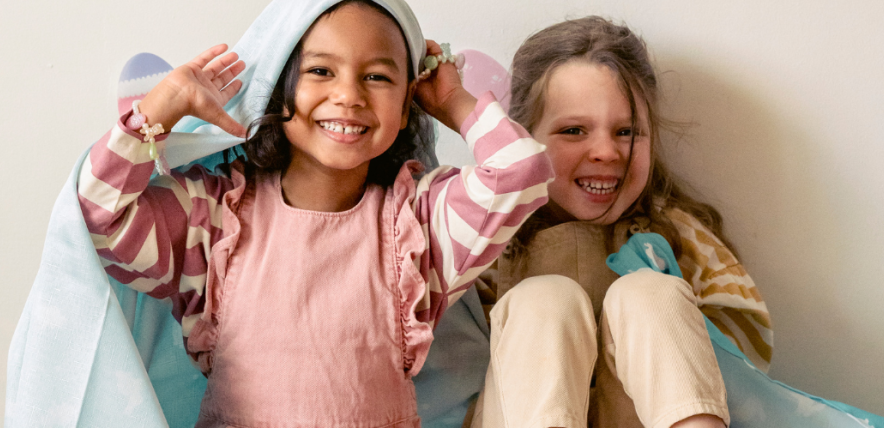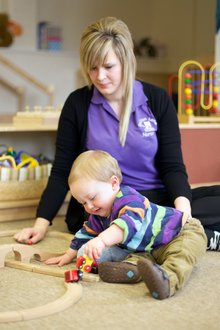As parents and carers, we want our children to have friends and to be popular with their peers. While this isn’t something that we can do for them, there are things we can do to help them along the way.
Babies begin to associate certain adults with playful activities such as peek-a-boo and will try to engage them with smiles and babbling to start the game off. This early communication skill continues to grow as their social circle widens, and they develop other communication skills that will help them to make friends.
If your child attends pre-school, nursery or a childminding setting, friendships will often focus on their immediate peer group. They will choose to play with children who are doing the things they enjoy playing, and will refer to many different children as ‘friends’. Their early educators support their development in partnership with you, and encourage the skills they need to make friends, and to be a friend, as part of their personal, social, and emotional development.
What you do makes the biggest difference to your child? Here are some things to consider:
- Have conversations as a family. Children need to hear and practice the rhythm of conversation, listening, asking questions, responding, and showing an interest are all vital components of friendship.
- Model the behaviour you want to encourage. How you greet and behave towards your friends is a valuable lesson for young children to copy.
- Give your child opportunities to play with other children, but don’t try too hard to push them together. Children need time and space to practice their social skills. They won’t always get it right, but that’s ok. Making friends is sometimes about taking a risk; it’s not always easy to take the first step. If your child gets it wrong, let them know it’s ok and talk to them about how they might do it differently next time.
- Know when to intervene when children are playing with their friends. Sometimes it’s wise to stand back and give them room to sort out a dispute (as long as no-one is getting hurt or too upset). If it’s not working, give both children some options such as sharing a toy or choosing something else to do instead. Remember that both children will feel aggrieved; empathise with them both without laying blame.
- If your child appears shy, let them make friends at their own pace in a space that is familiar and ‘safe’ to them, such as at home.
- Think about the qualities you value in your friends and replicate them in front of your child. For example, if a friend always knows when you need a hug, help your child to recognise how other people might be feeling and to respond with a simple act of kindness.
- If you are reading a story or watching a film together, look for the strands of friendship within the story and emphasise them to your child.







